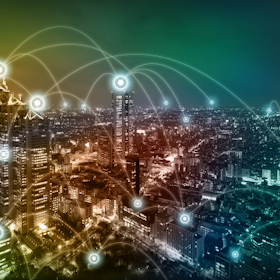
Potentially prosopagnosic Brad Pitt could be greatly assisted by facial recognition tools Google has responded to growing concerns about facial recognition software on its new tech platform: Google Glass. In a statement, Google outlined that facial recognition software will not be added to the new technology “without having strong privacy protections in place.” The vague statement suggests that some kind of facial recognition could be on its way, leaving a few people uncomfortable. Google Glass, a part of the Google Android ecosystem, is a new product that is currently being trialled by a few thousand users. It’s a face-mounted gadget that situates a tiny screen just above the right eye. The device is controlled by voice and, in some cases, facial gesture commands, like winking. The intention of Glass is not to replace existing products like smartphones, but to further augment them. It is an expansion of assistive technologies that provides a relatively simple and persistent level of functionality to the user. It is this concept of persistence that is proving troubling to some people.
Already through with the looking-Glass
Glass represents a new level of technological presence in our lives. More than carrying around a smartphone, Glass permanently occupies part of the user’s field of vision. It also changes a person’s appearance, as it’s right there on their face. Concerns also arise due to the camera. It’s not that Glass has a camera that causes concern; it’s that the camera is always right there, aimed at whatever the user is looking at, potentially recording everything in secrecy. If people don’t want to be recorded without their knowledge, they certainly don’t want to be automatically recognized and tagged by a faceless AI with cloud-based storage.
But it could actually be really helpful

There are actually a lot of people that could be helped and social or professional situations that may be improved by some basic facial recognition augmentation. Facial recognition doesn’t come easily or at all to some people. Two of the main causes of ‘face blindness’ are called prosopagnosia and synesthesia. Prosopagnosia is the inability to recognize faces. Each time a prosopagnosic meets someone it’s as if it were the first time they had never physically laid eyes on them. They don’t forget the person; just the face. Synesthesia normally surfaces as a cross-linking of concepts with senses, or senses with other senses. A synesthete may see all instances of the number 5 as orange, or taste certain flavors on their tongue when hearing specific words. A lesser-known side effect of synesthesia can be an inability to remember both names and faces. This is usually less-pronounced than in the case of prosopagnosics, but it can still lead to a lot of socially awkward situations. Both of these conditions are much more common than you may think. Many people are synesthetes of varying intensity without even knowing it.
How it could help
Ever forgotten someone’s name after meeting them, or taken a few seconds to recognize someone on the street after they said hi? It’s an awkward, guilt-inducing experience. The other person feels undervalued and you’ve committed a social faux-pas. Now imagine that this is what happens every single time you speak to anybody. Brad Pitt himself recently made headlines after stating that he fears he comes across as incredibly self-centered, when in actually he simply can’t recognize people with whom he is only loosely acquainted. A simple pop-up from Glass that said “Betty X: friends with John Y” is often all that would be needed for a face-blind person to join the dots. It could even work for people without prosopagnosia or synesthesia. Work functions are a notorious minefield of half-recognized faces and barely recalled names. Event organizers usually provide name tags for this exact reason. Facial recognition on a product like Glass would not only make these events even easier, but extend the whole concept of easy name recall to the rest of life in general. This broad an approach aimed at normal people might trigger a few warning bells for neuroplasticians, however. So we’ll leave that side of the argument to the more scientifically educated members of society.
Related Articles
Find Better Phones and Plans
Hundreds of cell phone plans unpacked. All the facts. No surprises.
































